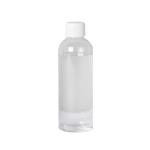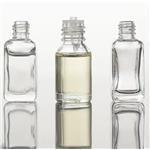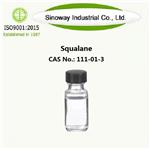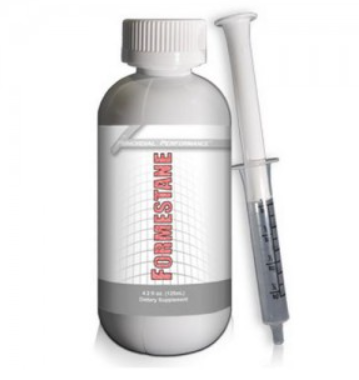Squalane: A Breakthrough in Skincare and Cosmetic Chemistry
Oct 30,2024
Introduce
Squalane, As a highly anticipated cosmetic ingredient in recent years, it has rapidly emerged in the cosmetics industry. This chemical substance has received widespread attention due to its excellent moisturizing and antioxidant properties. Although it is most commonly used in skincare products, its application scope actually extends far beyond the beauty field. The chemical structure of Squalane is simple yet effective. It is a saturated derivative derived from natural squalene, which makes it stable and widely applicable.

Figure 1 Characteristics of Squalane
Nature
Squalane is a colorless, odorless, and transparent liquid grease with the chemical formula C ∝₀ H ₆₂. It belongs to a hydrocarbon, a fully hydrogenated saturated hydrocarbon, and is not as easily oxidized as its precursor squalene. Due to its stable chemical structure, Squalane exhibits strong resistance to changes in light, air, and temperature. This makes it an ideal ingredient in cosmetics, especially in terms of antioxidant and long-lasting moisturizing properties. It has a low molecular weight, strong skin affinity, good permeability, and can be quickly absorbed by the skin without leaving a greasy feeling.
Main components
Squalane is a colorless, odorless, and transparent liquid grease with the chemical formula C ∝₀ H ₆₂. This substance is a member of the triterpenoid hydrocarbon family and belongs to the fully hydrogenated saturated hydrocarbon type. Compared to its precursor material Squalene, Squalane's saturated structure endows it with excellent stability and is less susceptible to oxidation and decomposition. This feature enables Squalane to perform exceptionally well under a wide range of application conditions, especially in the field of cosmetics where its stability has been highly valued.
From a chemical perspective, the stability of Squalane stems from its saturated hydrocarbon structure. This chemical structure means that there are no double bonds within the molecule, and the hydrogenation process converts all unstable double bonds into stable single bonds, allowing Squalane to maintain chemical stability in the face of UV radiation, oxygen molecules in the air, and temperature fluctuations. This characteristic makes it play an important role in the formulation of skincare products, especially those that require prolonged exposure to the environment or long-term preservation. In contrast, although squalene also has good moisturizing properties, the double bonds in its molecules are easily oxidized, which limits its application range and storage time.
In addition, Squalane's low molecular weight and excellent skin affinity make it a star ingredient in skincare products. It can be quickly absorbed by the skin, penetrating deep into the stratum corneum, providing continuous moisturizing and hydrating effects without leaving greasy residue on the surface of the skin. This lightweight texture makes Squalane suitable for all skin types, including oily, combination, and sensitive skin. In formula development, it is often used as a matrix component in combination with other active ingredients to improve its permeability and absorption efficiency. Due to the low van der Waals forces between molecules, Squalane's texture is lighter than other oils and is more compatible with the skin's natural sebum, thereby avoiding the risk of heaviness and clogged pores.
Purpose
Moisturizing agent: Squalane, as a high-quality moisturizing agent, has good absorption. It can quickly penetrate the skin barrier, providing sufficient moisture to the skin and preventing water loss. Its low allergenicity makes it suitable for various skin types, especially sensitive skin.
Antioxidants: Squalane's antioxidant properties enable it to effectively protect the skin from free radical damage and delay skin aging. This characteristic is particularly favored by anti-aging skincare products.
Base oil: Due to Squalane's low viscosity and high compatibility, it is often used as a base oil for other active ingredients, helping these ingredients to be evenly distributed in skincare products, improving product stability and effectiveness.
Drug delivery: In the field of pharmacy, Squalane is also used as part of drug delivery systems to help active ingredients better penetrate the skin, thereby enhancing drug efficacy.
![]() Reference
Reference
[1] Kim S K, Karadeniz F. Biological importance and applications of squalene and squalane[J]. Advances in food and nutrition research, 2012, 65: 223-233.
[2] Allison A C. Squalene and squalane emulsions as adjuvants[J]. Methods, 1999, 19(1): 87-93.
- Related articles
- Related Qustion
BSA is described as a globular non-glycoprotein with a molecular weight close to 66 430. It is made of 583 amino acid residues and has 17 cystine residues (8 disulphides bridges and 1 free thiol group).....
Nov 11,2024Biochemical Engineering4-hydroxyandrostenedione (4-OHA), named Formestane (Lentaron), is the first specific steroidal aromatase inhibitor (AI) in clinical use.....
Oct 9,2024DrugsSqualane
111-01-3You may like
- Squalane
-

- $6.90/ kg
- 2024-11-11
- CAS:111-01-3
- Min. Order: 1kg
- Purity: 99%
- Supply Ability: 10 tons
- Squalane
-

- $6.00 / 1kg
- 2024-11-11
- CAS:111-01-3
- Min. Order: 1kg
- Purity: More than 99%
- Supply Ability: 2000KG/Month
- Squalane
-

- $0.00 / 25Kg/Bag
- 2024-11-11
- CAS:111-01-3
- Min. Order: 1Kg/Bag
- Purity: 92% up, High Density
- Supply Ability: 20 tons






